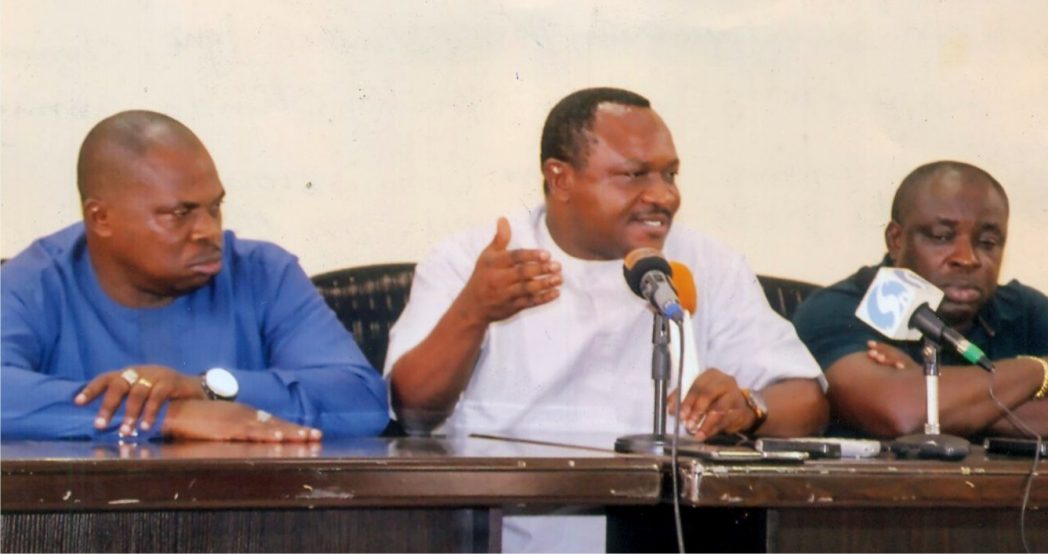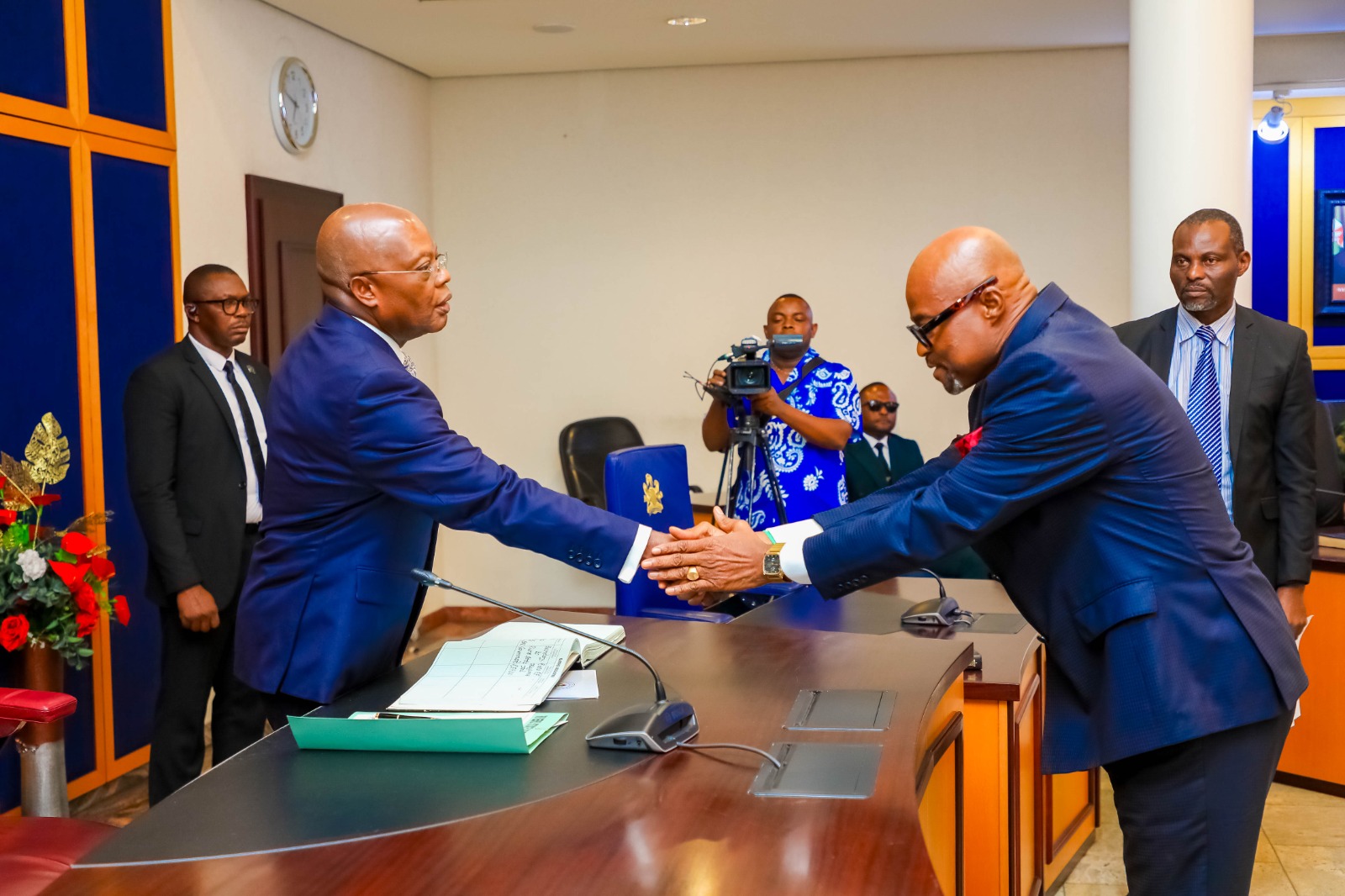Featured
Reactions Trail N7.2trn 2017 Budget

Mixed reactions have continued to trail the 2017 National budget of N7.298trillion presented to a joint sitting of the National Assembly, Wednesday by President Muhammadu Buhari.
While some see hope of recovery in the implementation of the 2017 budget as proposed, many Nigerians say the deficit budget and the quantum of borrowing needed to fund it has no promise of relief from economic hardship.
The 2017 appropriation bill of N7.298 trillion represents 20.4 per cent increase over the 2016 estimate.
Buhari, in his presentation, said the budget was predicated on a benchmark of $42.5 per barrel of oil, as against $38 in 2016, a projection of the production of 2.2million barrels per day and the exchange rate of N305 per dollar as against N197 per dollar, bench mark for 2016 budget.
Further breakdown of the Budget shows an allocation of 30.7 per cent of the budget to capital expenditure aimed at pulling the economy out of recession.
Key capital spending provisions would be on power, works and housing, which got the highest budgetary allocation of N529billion, followed by transport; N262billion, social intervention N150 billion.
Defence got N140 billion while the judiciary got an increased allocation of 100 billion naira.
Education got N50billion while Universal Basic Education got a direct allocation of N92billion, while the sum of N51 billion was also allocated to health.
According to the President, “We will continue to fortify our defence spending till all our enemies within and without are subdued, the people who voted for us are waiting for us to change the course of this nation, we are increasing funding to the judiciary in order to allow them function even better.”
Further breakdown of the budget proposals as submitted by the President shows that N419.02 billion was earmarked for statutory transfers, N1.66trillion for Debt servicing, N177.46billion as sinking fund.
Others are N2.98trillion for non debt re-current expenditure.
The president added that aggregate revenue available to fund the federal budget was N4.94 trillion, which is 28 per cent higher than 2016 full year projections.
Oil, according to him, is projected to contribute N1.985 trillion of the N4.94trillion, while non oil revenues, largely comprising Companies Income Tax, Value Added Tax, Customs and Excise duties, and Federation Account levies are estimated to contribute N1.373trillion.
“We have set a more realistic projection of N807.57 billion for independent revenues, while we have projected receipts of N565.1 billion from various recoveries.
Other revenue sources, including mining, amount to N210.9 billion”, he said.
The President added that the 2017 budget has a deficit plan of N2.36 trillion, which is about 2.18 per cent of GDP and to be financed mainly by borrowing, which was projected to be about N2.32 trillion.
“Our intention is to source N1.067trillion or about 46 per cent of this borrowing from external sources while, N1.254trillion will be borrowed from the domestic market”, he explained.
But in the votes for recurrent expenditure, the Ministry of Interior has the largest allocation of N482.7billion, followed by the Ministry of Education which has N390billion, Defence N325billion, Health N252billion, among others.
He also said that, the 2017 budget, will focus on the development of infrastructure, especially rail, road and power.
Buhari said he expects the 2017 budget to better the lives of Nigerians in a greater measure than that of 2016.
In his speech, the Senate President, Bukola Saraki, said the 2017 budget must ease the economic burden which is already overwhelming Nigerians.
He called on the executive during the formal presentation of the 2017 Appropriation Bill to implement the budget such that the lots of the less privileged Nigerians are made better.
He also said there is no hiding the fact that Nigerians are presently experiencing economic hardship.
According to him, the 8th National Assembly will work with the executive to ensure that it surmounts the present economic recession by passing the 11 economic reform laws alongside the 2017 budget.
“Our people must see that the singular pre-occupation of government is the search for solution to the current economic hardship; and the commitment to ease their burden,” Saraki said.
“They don’t want to know what political parties we belong, what language we speak or how we worship God. They have trusted their fate into our hands, and they need us now more than ever, to justify the trust that they have reposed on us”, he stated.
He added that: “The people of Nigeria will pardon us if we do some things wrong. But they will not forgive us if we do nothing. And that is why, Mr. President, the two chambers have taken a position that whatever may be our differences, or opinions on issues of the economy we will all work with one common purpose for this reason.”
Saraki noted that when the National Bureau of Statistics (NBS) confirmed that the nation’s economy has slumped into a recession, “the National Assembly rose with one voice.
“Through a joint resolution, we recommended that you make a ‘state of the nation’ address on the plan of government to get us out of recession and have 20 important Executive actions that in our view needed to be taken to get the economy back on track,” Saraki said.
“The National Assembly on its part listed and prioritized 11 economic reform bills for passage. We intend to get these bills ready alongside the 2017 Appropriation bill. We believe that the core elements of these bills will aid the Executive in mobilizing the required private capital into the general economy, but especially the infrastructure market”, he stated.
The Senate President said the harsh economic realities confronting the nation calls for greater collaboration by all arms of government to find urgent and sustainable solutions.
“It is in times like this, when we are challenged from all sides that we need to develop new relationships and cultivate more friends. No one can clap with one hand and expect to be heard. This is the time when compromise, engagement is the tool necessary for successful collaboration and cooperation.
“This is why I encouraged the Executive to continue with its engagement plans across all sections and stakeholders in the country particularly with our brothers in the Niger Delta and all parts of the country where instability is impacting on our collective economic and security aspirations,” he stated.
Similarly, the Speaker of the House of Representative, Hon Yakubu Dogara, described as frustrating, the repeated experience of poor implementation of the nation’s annual budget.
He appealed to Buhari to allow the capital component of the 2016 budget up to May, 2017, saying “it is certainly frustrating that we go through the annual Budget cycle/process of Budget presentation by Mr President, processing of same by the National Assembly, passage and signing into law every year, without unlocking the full potentials of such budgets for our citizens.
“This is because implementation and execution of the agreed Budget is always a major challenge year in year out. Sometimes, implementation rate is as low as 30 per cent, most times it is never higher than 50 per cent at the best of times. This has led to unacceptably high rate of abandonment of projects and distortions in Nigeria’s economic planning. Of course, this is an inherited problem for Mr President as he has only effectively passed through one budget cycle”.
“An Appropriation Act must be allowed to run for an uninterrupted period of twelve months, for the Executive to have enough time to execute it. This means that both Mr. President and the National Assembly must find a way to continue the execution of the 2016 Budget especially the capital component till May 6, 2017, which is twelve months from the date Mr President signed the 2016 Appropriation Bill.
“The problem is that most often the recurrent component of the Budget is implemented to an appreciable level, but the capital component execution is very low. It is crystal clear that the capital component of the 2016 Budget cannot realistically be implemented for only six months period, considering the time required for procurement processes and the raising of the revenue, including loans by government”.
Nneka Amaechi-Nnadi, Abuja
Featured
Bring Your Wealth Of Experience To Governance, Ibas Tasks New SSG

The Sole Administrator of Rivers State, Vice Admiral Ibok Ete Ekwe Ibas (rtd), has charged the new Secretary to the State Government (SSG), Prof Ibibia Lucky Worika to bring his wealth of experience to bear in governance of the State.
Vice Admiral Ibas (rtd) gave the charge shortly after swearing in the new SSG at the executive chambers of Government House on Wednesday night.
The Administrator who congratulated Prof Worika on his appointment said the choice was not merely an administrative decision but a statement of intent.
Vice Admiral Ibas (rtd) explained that the new SSG has an unparallel expertise in law, policy and international governance, which align perfectly with the mission to restore law, order, integrity and public trust in Rivers State.
He said: “To our new SSG, the task ahead is onerous, but your track record leaves no doubt in our minds that you will prove your mettle. Rivers State needs your intellect, grit and unweaving dedication. Together, we will write a new chapter of progress for this great state.
“Prof Worika’s role will be critical in driving this vision, ensuring that every policy, every decision and every action is in consonance with this administration’s mandate to restore law and order, stabilize the polity and to create the necessary conditions for the restoration of democratic institutions and representations.”
Vice Admiral Ibas (rtd) pointed to his maiden address to Rivers people wherein he emphasised that his administration will be committed to delivering an effective governance that is anchored on transparency, accountability and service.
He therefore, enjoined the new SSG to brace up to the demands of his office, and offer his best service as required while also working cooperatively with civil servants.
Vice Admiral Ibas (rtd) said: “You have no time to settle down. You must roll up your sleeves and get to work with the team.
“Our civil servants with whom we will work closely to run this administration are critical stakeholders and we must work with them to ensure that the state continues to function effectively during this administration.
“To the Permanent Secretaries and civil servants as a whole, once more I will ask your kind cooperation and support as we work to achieve our objectives at this time,” he added.
Featured
I Am One Of You, Sole Administrator Tells Rivers People …Warns Against Violence, Crude Oil Sabotage

The Sole Administrator of Rivers State, Retired Vice Admiral Ibok-Ete Ibas (rtd), has assured residents that he is not in the State as a partisan actor or political competitor but as a stabilising force to restore governance and order.
In a state broadcast yesterday, Ibas, who assumed duty at Government House, Port Harcourt, emphasised his commitment to protecting civil liberties and ensuring the safety of all citizens.
However, he issued a stern warning against crude oil sabotage and violence, urging residents to resist any temptation to return to past hostilities.
“For decades, I have dedicated my life to the service of our great nation—first as the 20th indigenous Chief of Naval Staff and later as Nigeria’s High Commissioner to Ghana. I answered this call out of the need for peace in Nigeria, and most importantly, in Rivers State,” Ibas stated.
Describing the prolonged political impasse as a major setback to governance and democracy, he acknowledged the hardships faced by families and businesses due to the prevailing uncertainty.
“As a son of the Niger Delta, I am one of you. I feel the weight of this crisis on families, businesses, and the future of our people,” he said.
Ibas commended President Bola Tinubu’s decisive action in declaring a state of emergency in Rivers State, stressing that it was a necessary move to restore stability and revive economic activities.
“My mandate is clear: restore law and order, ensure stability, and create an enabling environment for economic growth. But this mission requires collective support from all stakeholders, regardless of political affiliation or ethnicity,” he stated.
He discouraged attacks on oil infrastructure, reminding residents of the devastating environmental and economic consequences of such actions.
“The Niger Delta has moved beyond the destruction of oil facilities. We must resist the temptation to return to those ugly days,” he cautioned.
While pledging to uphold civil liberties and the rule of law, the Sole Administrator warned that lawlessness and violence would not be tolerated.
“We will not act arbitrarily, but we will not hesitate to deal decisively with anyone who threatens the peace and stability of Rivers State,” he declared.
Ibas revealed that he had concluded a State Security Council meeting where strategic measures were outlined to de-escalate tensions and prevent further conflict.
Expressing gratitude to President Tinubu for entrusting him with the responsibility, he also acknowledged the National Assembly for approving the emergency declaration.
“I will work closely with the national leadership under the guidance of the President. I am optimistic that Rivers State will emerge stronger and greater,” he concluded.
Featured
Abuja Truck Explosion Death Toll Rises To 10 …As Another Truck Crashes On Same Spot

The Federal Capital Territory Emergency Management Department has confirmed that 10 persons have died in the truck explosion that occurred near Karu bridge, along the Abuja-Keffi Expressway, on Wednesday.
The FEMD’s Head of Public Affairs, Nkechi Isa, confirmed the numbers in a statement, yesterday.
The Acting Director General of the Emergency Department, Abdulrahman Mohammed, had earlier confirmed that eight persons had died as of yesterday morning, with five confirmed dead on the scene, and four others burnt beyond recognition.
““Five people were taken dead from the scene yesterday (Wednesday). Out of the people that were injured, one died, making six. Then this morning (yesterday), when I asked my people to go round, they discovered that two had already died again, making eight. Four of them from yesterday were burnt beyond recognition.”, he explained.
However, in her statement, Isa said the Head, Forecasting Response and Mitigation of FEMD, Mr Mark Nyam, said eight bodies were deposited at the Karu Hospital Morgue, one body at the Asokoro Distinct Hospital Morgue while another body was deposited at the National Hospital.
He added that some victims had been referred to the Gwagwalada Teaching Hospital, Federal Medical Centre, Keffi, and Cedercrest Hospital Abuja for proper care.
Part of the statement reads, “The FCT Emergency Management Department FEMD can confirm that 10 persons lost their lives to the truck explosion that occurred at Karu bridge along Abuja / Keffi expressway.
“The Head Forecasting Response and Mitigation of FEMD, Mr Mark Nyam said eight bodies were deposited at the Karu Hospital Morgue, one body at the Asokoro Distinct Hospital Morgue while another body was deposited at the National Hospital.”
He informed that over 30 persons suffered various degrees of burns.
“Some of the victims have been referred to Gwagwalada Teaching Hospital, Federal Medical Centre,Keffi and Cedercrest Hospital Abuja for proper care,” he said.
Isa also stated that no fewer than 10 vehicles were burnt during the incident, adding that the FEMD boss after a visit to the incident scene, appealed to motorists to observe traffic rules and regulations.
He also cautioned against reckless driving, dangerous overtaking and poor maintenance of vehicles, while urging FCT residents to always use the 112 emergency toll free number in the event of an emergency.
Meanwhile, barely 24 hours after the incident, another fertiliser-laden truck has collapsed on the same spot.
The Tide learnt that the incidence occurred at about 3:54pm yesterday.
The Head of Public Affairs of the FCT Emergency Management Department, Nkechi Isa, confirmed the accident in a statement, stating that the truck collided with a Hijet and a dump truck, adding that no life was lost.
She cautioned road users to drive with caution as the Federal Road Safety Corps was making efforts to tow away the affected vehicles, to avoid traffic built up.
“Another accident has occurred under Karu bridge along the Abuja-Keffi Expressway. Thankfully, no life was lost to the incident. Our Search and Rescue say the accident occurred when a truck laden with fertilizer ran into a Hijet and a dump truck also known as tipper.
“Motorists are advised to drive with caution as the Federal Road Safety Corps is taking steps to tow away the affected vehicles in order to avoid traffic built up,” the statement read.
Meanwhile, several videos showed some persons trying to clear the fertiliser bags from the fallen truck to ease traffic.
-

 News1 day ago
News1 day agounpaid salaries: Abia teachers to begin strike Thursday
-

 Education17 hours ago
Education17 hours agoRivers Poly Matriculates 1, 882 Fresh Students
-

 News1 day ago
News1 day agoIAWPA Honours Rivers NSCDC Commandant
-
Niger Delta1 day ago
Tompolo, N’Delta’s Distinguished Son – Oborevwori
-

 Politics1 day ago
Politics1 day agoFG Reaffirms Commitment To Enduring Democracy
-

 News1 day ago
News1 day agoSERAP Sues NBC Over Ban On ‘Tell Your Papa’ Song
-

 Maritime17 hours ago
Maritime17 hours agoRacketeering: TTP Trains Customs Agents, Freight Forwarders On Eto APP
-

 News1 day ago
News1 day agoHYPREP Moves To Complete Ongoing Projects This Year

